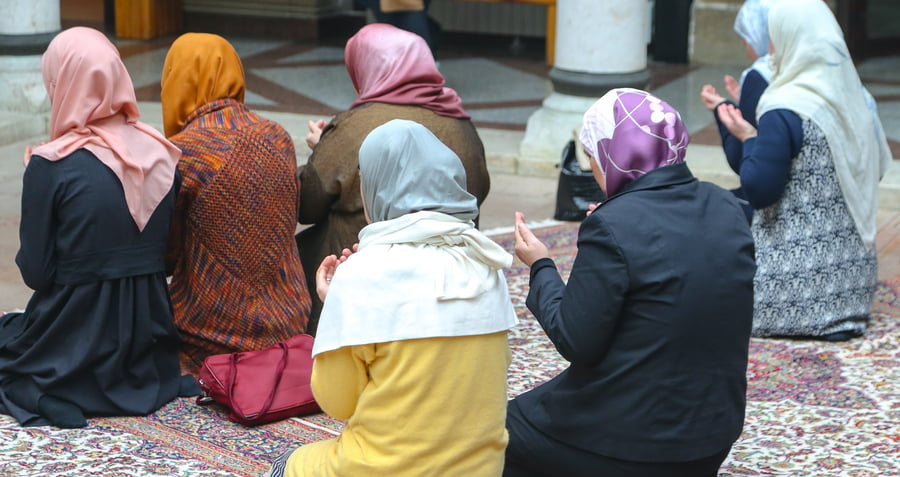What Is the Ruling of Women-Only Congregational Prayers? [Hanafi]
Hanafi Fiqh
Answered by Shaykh Faraz Rabbani and Shaykh Ilyas Patel
Question
I understand that in the hanafi madhab, women cannot lead a congregation of other women.
From what someone had told me, it is considered prohibitively dislike (makruh tahrimi). I informed my mother of this. The next time she was with a group of women, they told her to lead. She refused saying that it is disliked (makruh) in the Hanafi Madhab. The other women there then said that Aisha (ra) lead a congregation of women, so why shouldn’t they pray as such? I was wondering if I could get the daleel for why women can not lead a congregation of women.
Answer
In the Name of Allah, Most Gracious, Most Merciful
In the Name of Allah the Merciful and Compassionate,
On the authority of Aisha (Allah be pleased with her), the Prophet (Allah bless him and give him peace) said, “There is no good in the congregation of women.” [Ahmad, and Tabrani in Awsat]
At the same time, it is reported by Rayta that Aisha (Allah be pleased with her) led them in the prayers and stood in between, in a fard prayer. [Musannaf Abdul Razzaq]
Imam Zafar Usmani explains the two ahadith by stating that the first narration explains the general offensiveness of women’s own congregation. Sayyida Aisha’s leading of prayer, which is stated in the latter hadith, indicates the permissibility at times and to teach the women the proper method of prayer.
We do not negate the permissibility of this matter, to such an extent that if they were to pray in a congregation of their own, we would state the validity of the prayer. [Imam Zafar Usmani, I’la al-Sunan 4/215]
Without such a reason, however, a congregation of women would be prohibitively disliked (makruh tahriman), [Shurunbulali, Maraqi al-Falah; Hashiyat Ibn Abidin] because it is going against that which has been legislated, which is that women either pray alone (given the normal case would be for them to pray at home), or behind a male congregation.
The Hanafi imams also note that had it been something that was a general recommendation or generally permissible for women, then the female companions of the Prophet (Allah bless him and give him peace), who were most avid to seek Allah’s pleasure would have adopted it as a widespread practice. But there is nothing to indicate that this was the case, from which the Hanafis (and many other mujtahids from the salaf) understood that the narrations of permissibility indicate the exceptional cases, explained above, and not the rule.
It is also important to understand that the nature of legal responsibility differs between men and women. That which is best for men to do is not necessarily best for women, and vice versa. And all are commanded to seek the pleasure of Allah, as He wants from them.
And Allah knows best.
Shaykh Ilyas Patel and Faraz Rabbani
Shaykh Faraz Rabbani spent ten years studying with some of the leading scholars of recent times, first in Damascus, and then in Amman, Jordan. His teachers include the foremost theologian of recent times in Damascus, the late Shaykh Adib al-Kallas (may Allah have mercy on him), as well as his student Shaykh Hassan al-Hindi, one of the leading Hanafi fuqaha of the present age. He returned to Canada in 2007, where he founded SeekersGuidance in order to meet the urgent need to spread Islamic knowledge–both online and on the ground–in a reliable, relevant, inspiring, and accessible manner. He is the author of: Absolute Essentials of Islam: Faith, Prayer, and the Path of Salvation According to the Hanafi School (White Thread Press, 2004.) Since 2011, Shaykh Faraz has been named one of the 500 most influential Muslims by the Royal Islamic Strategic Studies Center.
